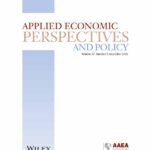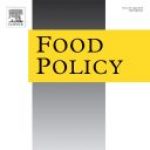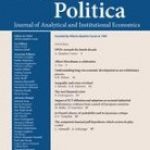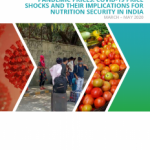Author: Payal Seth

Multisectoral Convergence of Food, Nutrition and Sanitation Programs for Child Health: Evidence From Country-Level Programs in India
Abstract This paper underscores the critical role of multisectoral convergence in enhancing child health, particularly in addressing anemia, a micronutrient deficiency linked to both diet and sanitation. We explore how the integration of nationwide food and nutrition programs with sanitation initiatives impacts anemia in Indian...

Addressing Information and Credit Barriers to Making India Open Defecation Free and Improving Child Health: Evidence from a Cluster Randomized Trial in Rural India
Abstract Read a policy brief based on this study. Background Open defecation (OD) remains a significant public health challenge in India, contributing to adverse child health outcomes. Eliminating OD and improving child health necessitates both universal access and adoption of toilets. Despite the success of...

Understanding the Determinants of Farmers’ Adoption of Artificial Insemination in Livestock
Abstract Read a policy brief based on this study. The adoption of artificial insemination (AI) in livestock is a crucial factor in enhancing breeding efficiency, livestock productivity, and income opportunities for farmers. However, the adoption of AI among farmers can vary significantly, influenced by a...

Women’s Empowerment and Intra-Household Diet Diversity Across the Urban Continuum: Evidence from India’s DHS
Abstract Read a policy brief based on this study. Women’s empowerment has been associated with improved nutritional outcomes in various settings. However, the gains from empowerment do not necessarily accrue to different members of the same household in the same manner. Furthermore, the relationship between...

Improving Livelihoods Through Enhanced Goat Breeding
Goat rearing holds significant promise for smallholder farmers in India, offering resilience and income generation even during crop failure. However, reliance on natural breeding practices limits productivity due to issues like inbreeding and disease transmission. Artificial insemination presents a viable…

Did the COVID-19 Lockdown Reverse the Nutritional Gains in Children? Evidence from Rural India
Abstract Read a policy brief based on this study. To address the missing link that goes beyond the changes in dietary consumption and food expenditures to assess the impact of the pandemic on child undernutrition, specifically anthropometric outcomes, this paper uses primary panel data (pre-...

Why Aren’t More Farmers Using Artificial Insemination for Goat Rearing?
As a source of income generation during crop failures, goat-rearing offers many advantages to smallholder farmers in India. But a lack of established markets and infrastructure leaves many farmers dependent on natural breeding practices instead of the more beneficial artificial…

Sowing Trouble: The Beginnings of an Alcohol Problem?
On June 2, 2021, the Indian government announced a Production Linked Incentive (PLI) scheme for several key sectors of the economy. Under this scheme, the fuel companies will be required to sell gasoline containing up to 20 percent ethanol by 2023, with the view to reduce dependency on oil imports and lower carbon dioxide emissions in cities. (Ethanol adds extra oxygen to petrol which lowers the emission of harmful gases and is shown to significantly reduce air pollution.) This target implies that India will need 1,000 crore liters of ethanol against the nation’s current capacity of 684 crore liters.

COVID-19 and Women’s Nutrition Security: Panel Data Evidence from Rural India
Abstract Read a policy brief based on this study. In response to the COVID-19 pandemic, India implemented a stringent nationwide lockdown. Although food value chains and allied activities were exempted from the lockdown, there were widespread disruptions in food access and availability. Using two-panel datasets,...

Pandemic Prices: COVID-19 Price Shocks and Their Implications for Nutrition Security in India
In Pandemic Prices: Price Shocks from COVID-19 and Their Implications on Nutrition Security in India, TCI researchers assess the impact that India’s COVID-19 lockdown had on Indian food prices. They demonstrate that the lockdown disrupted the supply chains for some foods more than others, driving up...

